Parliamentary Finance Committee reveals a move to question the Governor of the Central Bank of Iraq: We are working to change him
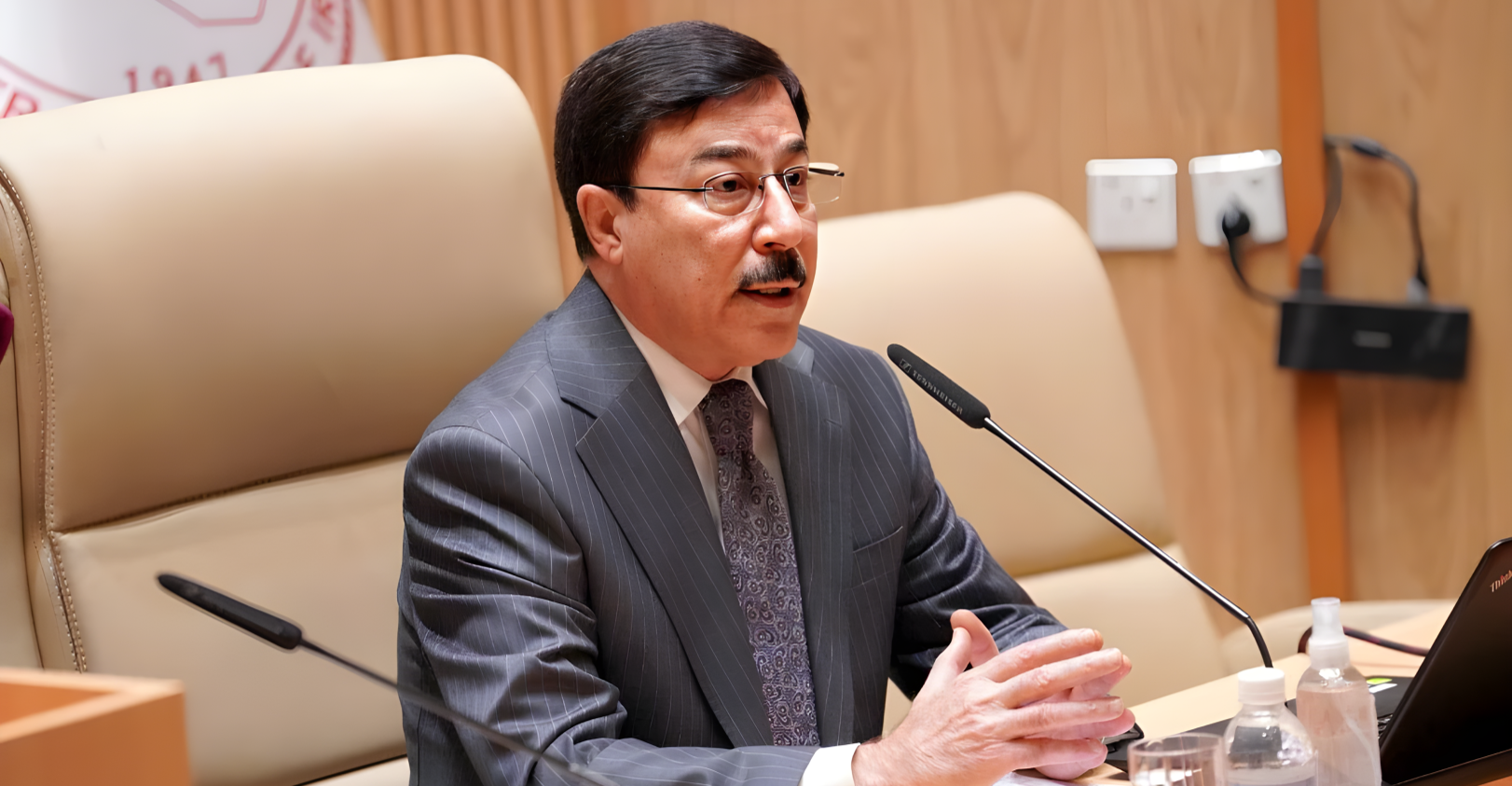 Member of the Parliamentary Finance Committee, Mohammed Nouri, revealed on Sunday that there is a move within the committee and the House of Representatives to question the Governor of the Central Bank of Iraq, Ali Al-Alaq, due to the lack of control over the stability of the dollar price and the dominance of private banks over the currency selling window.
Member of the Parliamentary Finance Committee, Mohammed Nouri, revealed on Sunday that there is a move within the committee and the House of Representatives to question the Governor of the Central Bank of Iraq, Ali Al-Alaq, due to the lack of control over the stability of the dollar price and the dominance of private banks over the currency selling window.
Nouri told Shafaq News Agency, “There is a move within the Parliamentary Finance Committee and the House of Representatives to question the Governor of the Central Bank, Ali Al-Alaq, due to the existence of many files, most notably the bank’s lack of control over the stability of the dollar exchange rate in the market.”
He pointed out that “the other reason, which is considered one of the reasons for questioning the governor of the Central Bank, is the dominance of some private banks owned by foreign nationalities over the window for buying and selling currency and foreign transfers.”
Nouri explained that “there are other works that we are doing through official letters and correspondence to change the governor of the Central Bank because he has exceeded the legal age and continues in the position while he should be referred to retirement.”
On Monday, August 19, a member of the Parliamentary Finance Committee, Mustafa Al-Karawi, revealed that a request had been submitted to the Presidency of the Council of Representatives to set a date to question the Governor of the Central Bank of Iraq regarding several files, most notably the exchange rate of the dollar against the local currency.
Al-Karawi told Shafaq News Agency, “Members of the Parliamentary Finance Committee had previously submitted a request to the Speaker of the House of Representatives to question the Governor of the Central Bank, Ali Al-Alaq.”
He added, “The interrogation relates to several files, the most important of which are the dollar exchange rate, its sale to travelers, the currency buying and selling window, financial transfers abroad, cash financing, US sanctions, and negotiations with the US Federal Reserve.”
It is noteworthy that the Supreme Judicial Council in Iraq, on August 19, supported the State Council’s findings regarding the referral of the Central Bank Governor, Ali Al-Alaq, to retirement after reaching the legal age.
The Supreme Judicial Council said in an official document received by Shafaq News Agency that the same subject was studied by the Studies Committee in the Presidency of the Judicial Supervision Authority, and the same opinion of the State Council was reached in the two aforementioned decisions.
The House of Representatives had sent a letter to the Supreme Judicial Council inquiring about the judiciary’s opinion on the permissibility of the bank governor continuing in service after reaching the legal retirement age.
The State Council has decided the official position on whether or not the Central Bank Governor, Ali Al-Alaq, will continue in his position, confirming that he has exceeded the legal retirement age.
It was stated in correspondence between the State Council and Parliament that in response to the House of Representatives’ request to clarify the opinion of the State Council regarding the permissibility of the Governor of the Central Bank continuing in service after reaching the legal retirement age.
He pointed out that the legislator has explicitly stipulated that retirement upon reaching the legal age is an inevitable retirement by law unless exempted by a special provision, and since there is no special provision exempting the Governor of the Central Bank from the provisions of inevitable retirement upon reaching the legal age.
The State Council confirmed that the legal principle states: “Heads of independent bodies are subject to the legal age for retirement.”
Shafaq.com
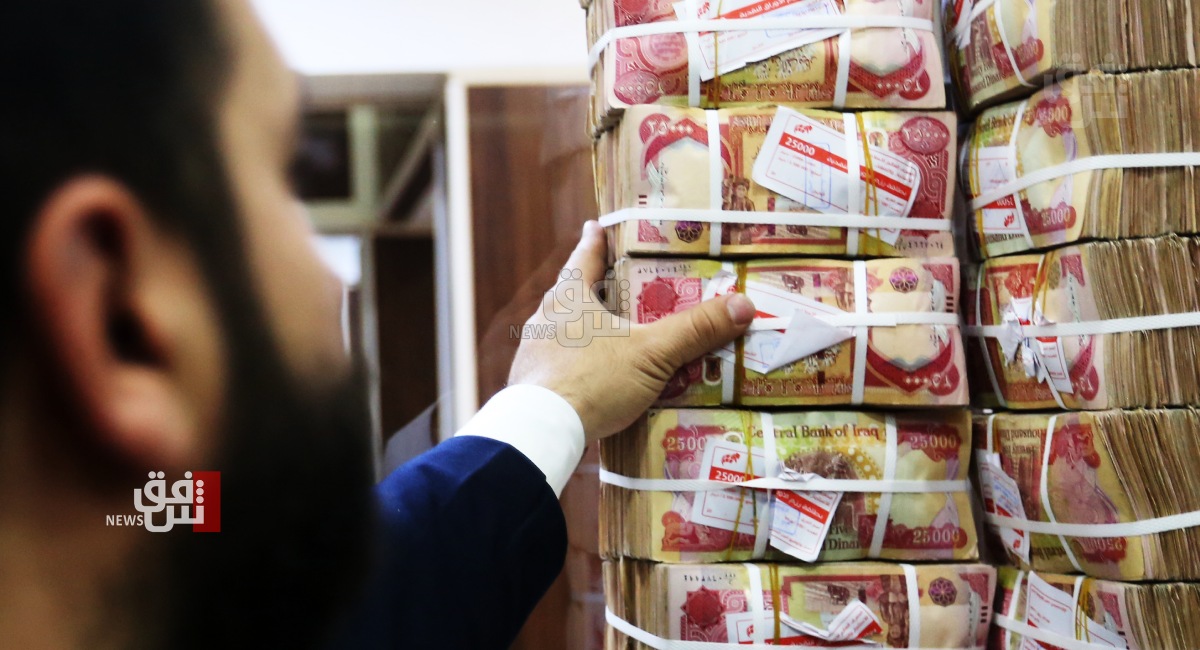 The Central Bank of Iraq announced, on Monday, that the capital of private banks increased by 7.3%.
The Central Bank of Iraq announced, on Monday, that the capital of private banks increased by 7.3%.
 Member of the Parliamentary Finance Committee, Mohammed Nouri, revealed on Sunday that there is a move within the committee and the House of Representatives to question the Governor of the Central Bank of Iraq, Ali Al-Alaq, due to the lack of control over the stability of the dollar price and the dominance of private banks over the currency selling window.
Member of the Parliamentary Finance Committee, Mohammed Nouri, revealed on Sunday that there is a move within the committee and the House of Representatives to question the Governor of the Central Bank of Iraq, Ali Al-Alaq, due to the lack of control over the stability of the dollar price and the dominance of private banks over the currency selling window.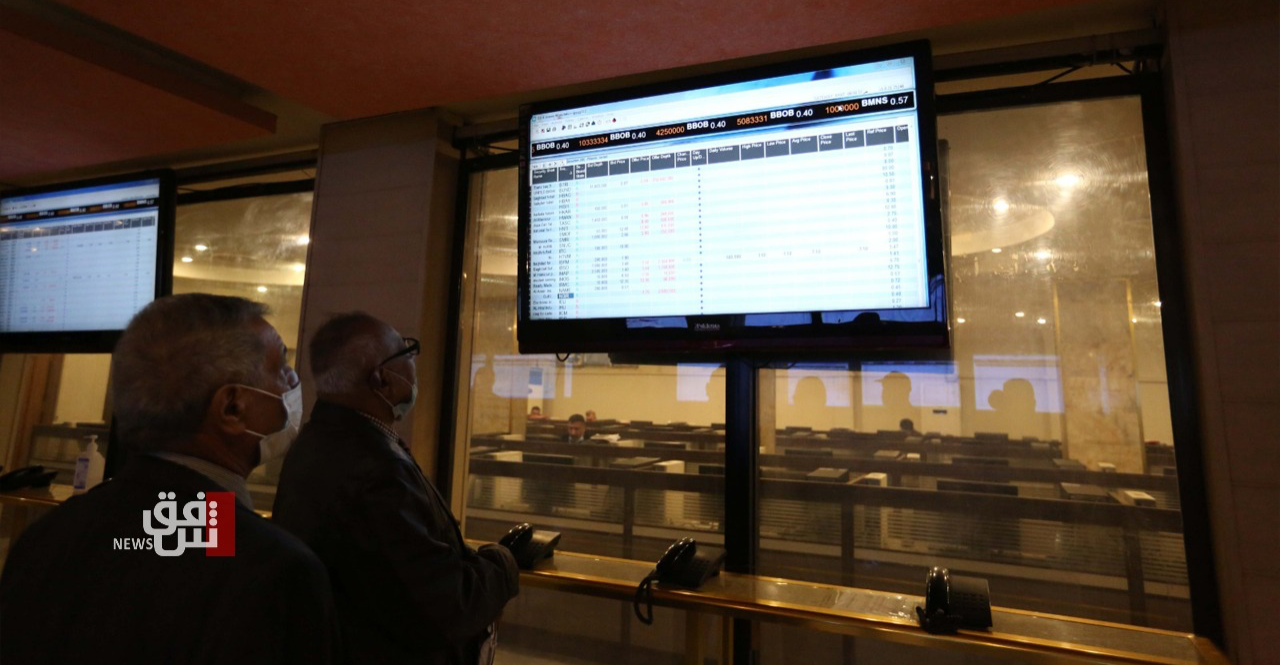 The Iraq Stock Exchange announced, on Sunday, the trading of 88 billion shares, with a financial value of more than 84 billion dinars, during last October.
The Iraq Stock Exchange announced, on Sunday, the trading of 88 billion shares, with a financial value of more than 84 billion dinars, during last October. Economic expert Nabil Al-Marsoumi revealed today, Saturday, that the continuation of…Iraq In OPEC it will cause him severe financial difficulties and gap Huge deficit starting with the 2025 budget.
Economic expert Nabil Al-Marsoumi revealed today, Saturday, that the continuation of…Iraq In OPEC it will cause him severe financial difficulties and gap Huge deficit starting with the 2025 budget.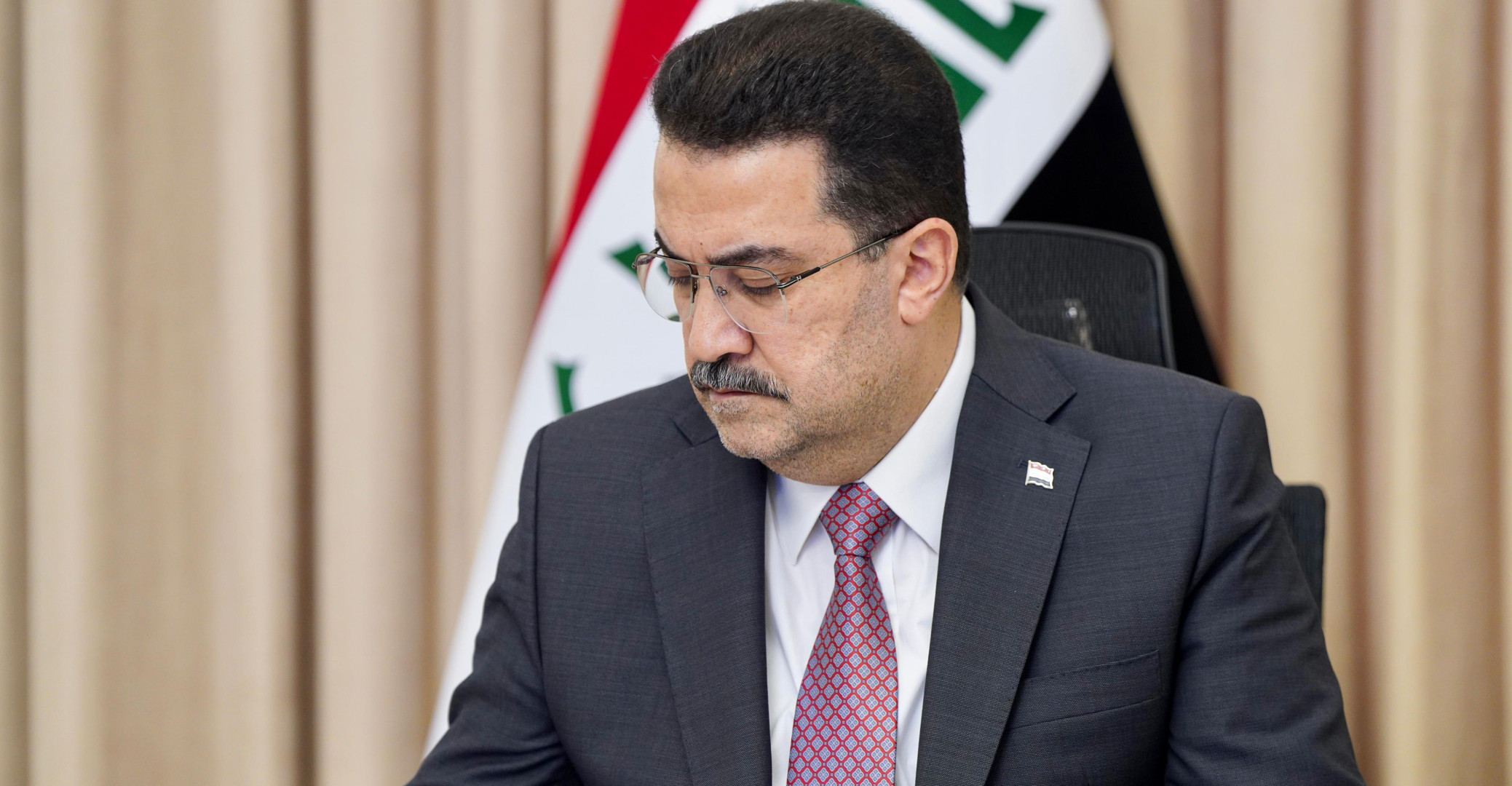 Shafaq News / Prime Minister Mohammed Shia al-Sudani directed, on Friday, to take a number of steps within the framework of banking and financial reform in the country, including increasing the number of bank branches in the governorates, as most activities are concentrated in the capital, Baghdad.
Shafaq News / Prime Minister Mohammed Shia al-Sudani directed, on Friday, to take a number of steps within the framework of banking and financial reform in the country, including increasing the number of bank branches in the governorates, as most activities are concentrated in the capital, Baghdad.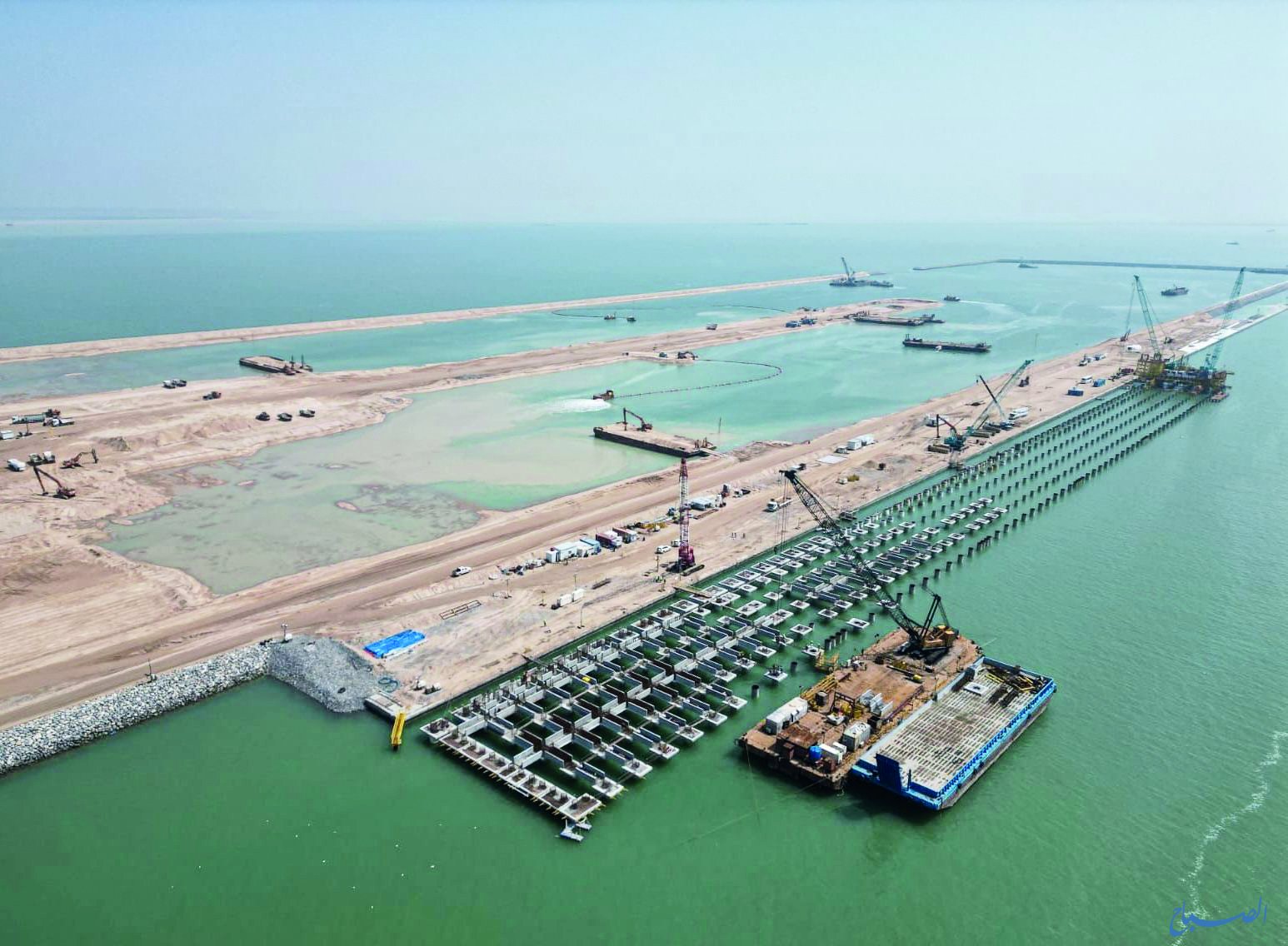 The Prime Minister’s Advisor for Transport Affairs, Nasser Al-Asadi, announced that the Faw Port is ready to receive the first commercial ship.
The Prime Minister’s Advisor for Transport Affairs, Nasser Al-Asadi, announced that the Faw Port is ready to receive the first commercial ship.